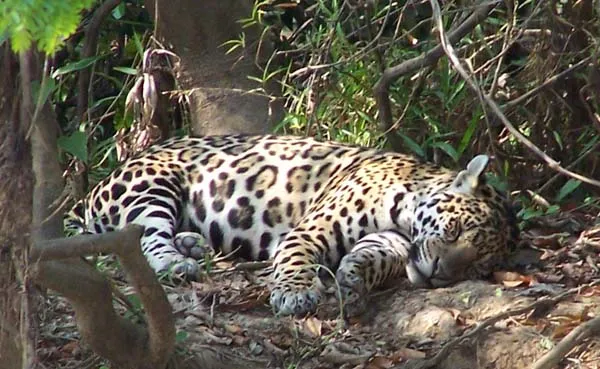
The majestic jaguar, one of the most iconic big cats in the animal kingdom, is known for its powerful build, incredible hunting skills, and secretive nature. Among its many fascinating traits, jaguar sleeping habits provide unique insights into its behavior, ecology, and survival strategies. In this article, we delve into the sleeping patterns of jaguars, exploring their sleeping locations, schedules, and their relation to environmental and biological factors.
Jaguar sleeping habits refer to the specific ways jaguars rest and recover to maintain their strength and agility. Like other predators, jaguars require significant periods of rest to conserve energy for hunting and territorial activities. These habits are influenced by their environment, diet, and the presence of other predators or threats.
Jaguars exhibit a preference for secluded and protected locations when it comes to sleeping. Jaguar sleeping habits often involve finding spots that provide camouflage and safety from potential threats. These include:
Dense vegetation: Jaguars frequently sleep in areas with thick foliage that offers shade and concealment.
Riverbanks and wetlands: Proximity to water not only aids their hunting but also provides cooler sleeping spots in hot climates.
Tree branches: Occasionally, jaguars rest on tree branches to avoid ground-level threats and gain a vantage point over their territory.
Caves and rock formations: These spots offer both protection from weather conditions and hiding places from other predators.
Jaguar sleeping habits are highly adaptive to their surroundings. For instance, in tropical rainforests, jaguars might choose shaded areas to escape the heat. In open grasslands, they might seek spots near shrubs or rocks for cover. Seasonal changes, such as the wet and dry seasons, can also affect their choices of sleeping locations.
Jaguars are primarily nocturnal, meaning they are most active during the night. As such, jaguar sleeping habits are largely structured around conserving energy during the daytime. Jaguars usually hunt at night and rest during the day to avoid the heat and minimize competition with other predators.
Jaguars spend approximately 10 to 12 hours per day resting or sleeping. This duration varies based on factors such as the availability of food, environmental conditions, and reproductive cycles. For example:
Abundant food supply: Jaguars in regions with plentiful prey may sleep longer due to reduced hunting demands.
Scarce food availability: Jaguars in areas with limited prey may sleep less, devoting more time to hunting.
Seasons play a significant role in jaguar sleeping habits. During the wet season, when prey is abundant and water sources are widespread, jaguars may sleep more frequently. In contrast, the dry season often forces jaguars to cover larger territories in search of food and water, reducing their sleeping time.
The primary purpose of jaguar sleeping habits is energy conservation. Jaguars are apex predators that rely on bursts of immense power and speed to take down their prey. Sleeping allows them to restore energy and maintain their physical condition for these demanding activities.
Jaguar sleeping habits vary significantly with age:
Cubs: Young jaguars sleep for most of the day, similar to domestic kittens. Their extended rest periods support growth and development.
Adults: Adult jaguars balance their sleeping habits with hunting, territorial patrols, and mating activities.
Elderly jaguars: Older jaguars may spend more time resting due to reduced hunting efficiency and physical stamina.
Male and female jaguars exhibit slight differences in their sleeping patterns:
Male jaguars: Spend more time patrolling their territories and may sleep less compared to females.
Female jaguars: Especially those with cubs, may sleep in shorter bursts, staying alert to protect their offspring.
One of the key reasons jaguars sleep during the day is to avoid direct competition with other predators. By being nocturnal, jaguars minimize interactions with diurnal predators like lions or pumas.
Jaguar sleeping habits often include choosing locations that minimize their exposure to potential threats. They prefer elevated or concealed spots, ensuring they remain safe even while asleep. Their acute senses allow them to detect danger even during rest.
Human activities, such as deforestation and urban expansion, have forced jaguars to adapt their sleeping habits. For example:
Increased nocturnality: To avoid human interactions, jaguars may shift their activity patterns to become even more nocturnal.
Relocation of sleeping spots: Jaguars may move further into remote areas to find undisturbed locations for resting.
Habitat destruction has significantly disrupted jaguar sleeping habits. Reduced forest cover limits the availability of secure sleeping spots, increasing their vulnerability to threats.
Like lions and leopards, jaguars are carnivorous predators that require long resting periods to conserve energy.
Jaguars, similar to tigers, often choose secluded locations near water for resting.
Unlike cheetahs, which rely on open plains, jaguars prefer dense forests or wetlands for their sleeping and hunting activities.
Jaguars exhibit more adaptability in their sleeping locations compared to lions, which rely heavily on pride-based resting behavior.
Jaguar sleeping habits play a crucial role in maintaining the health of ecosystems. By conserving energy through strategic resting periods, jaguars can efficiently hunt and regulate prey populations. Their behavior indirectly affects vegetation and other species within their habitat, contributing to the overall balance of the ecosystem.
The study of jaguar sleeping habits provides valuable insights into the behavior, survival strategies, and ecological roles of these incredible predators. From their choice of sleeping spots to their nocturnal schedules, jaguars exemplify adaptability and resilience in the wild. Understanding their sleeping habits not only enriches our knowledge of these majestic animals but also highlights the importance of conserving their habitats to ensure their survival.
In a world where human activities increasingly encroach on wildlife, learning about and protecting jaguars and their unique behaviors becomes more critical than ever. By safeguarding their habitats and respecting their natural rhythms, we can contribute to the preservation of these magnificent creatures and the ecosystems they inhabit.
animal tags: Jaguar
We created this article in conjunction with AI technology, then made sure it was fact-checked and edited by a Animals Top editor.